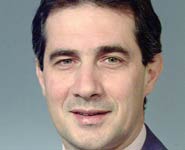United Bristol Healthcare Trusthas been awarded £3.8 million for ground-breaking research into treatments for cardiovascular disease.
The funding will create the Bristol Biomedical Research Unit in Cardiovascular Disease, which will be run jointly with the University of Bristol.
The unit will eventually be based at the new £57 million Bristol Heart Institute, which is under construction to the rear of the Bristol Royal Infirmary.
The research, which will be spread over four years and which has been funded by the Department of Health, will examine treatment for adults and children with diseases of the heart and circulation.
Coronary heart disease is the most common cause of death in the UK and around one in five men and one in six women die from the condition. The disease claims more than 100,000 lives nationally each year. Together with other circulatory diseases it accounts for 4 in 10 of all deaths.
Congenital heart disease can still lead to devastating illness in newborn and older children, although surgical correction has vastly improved survival and quality of life.
The new research unit’s work into will be split into six areas:
- Protecting the heart and improving success rates for adults and children who have open heart surgery
- Improving the long-term success of heart bypass operations by preventing the narrowing of grafted veins
- Developing a new treatment to reduce inflammation after a heart attack or severe blood loss.
- Devising new aids for diagnosis and treatment of patients at risk of heart attack due to severe inflammation of the arteries
- Gaining a better understanding of why the hearts of patients with diabetes take longer to repair themselves after a heart attack and of how to provide treatment using the patient’s own stem cells
- Studying why some children born with a narrowed aorta – the artery which supplies the body with oxygenated blood – have long-term problems with high blood pressure
Much of the programme will involve highly-sophisticated imaging tools, such as magnetic resonance imaging (MRI), which will measure the effects of treatment on the heart and blood vessels. In many cases, the research will provide the basis for later, full-scale trials.
British Heart Foundation Professor of Cardiac Surgery, Gianni Angelini, who will be leading the research, said: “This award will allow us to continue to perform internationally-competitive research into cardiovascular diseases.
“Most importantly, it will help us to identify clinical problems and understand them using basic science. We will then be able to translate these new insights into benefits for patients.”
Welcoming the funding, United Bristol Healthcare Trust chief executive Graham Rich, said: “This is fantastic news - it is a major vote of confidence in the world-class research we do here with our university partners.
“It will mean we can play a leading part in reducing death and illness from cardiac disease and that we will also be able to share our expertise across the country.”
